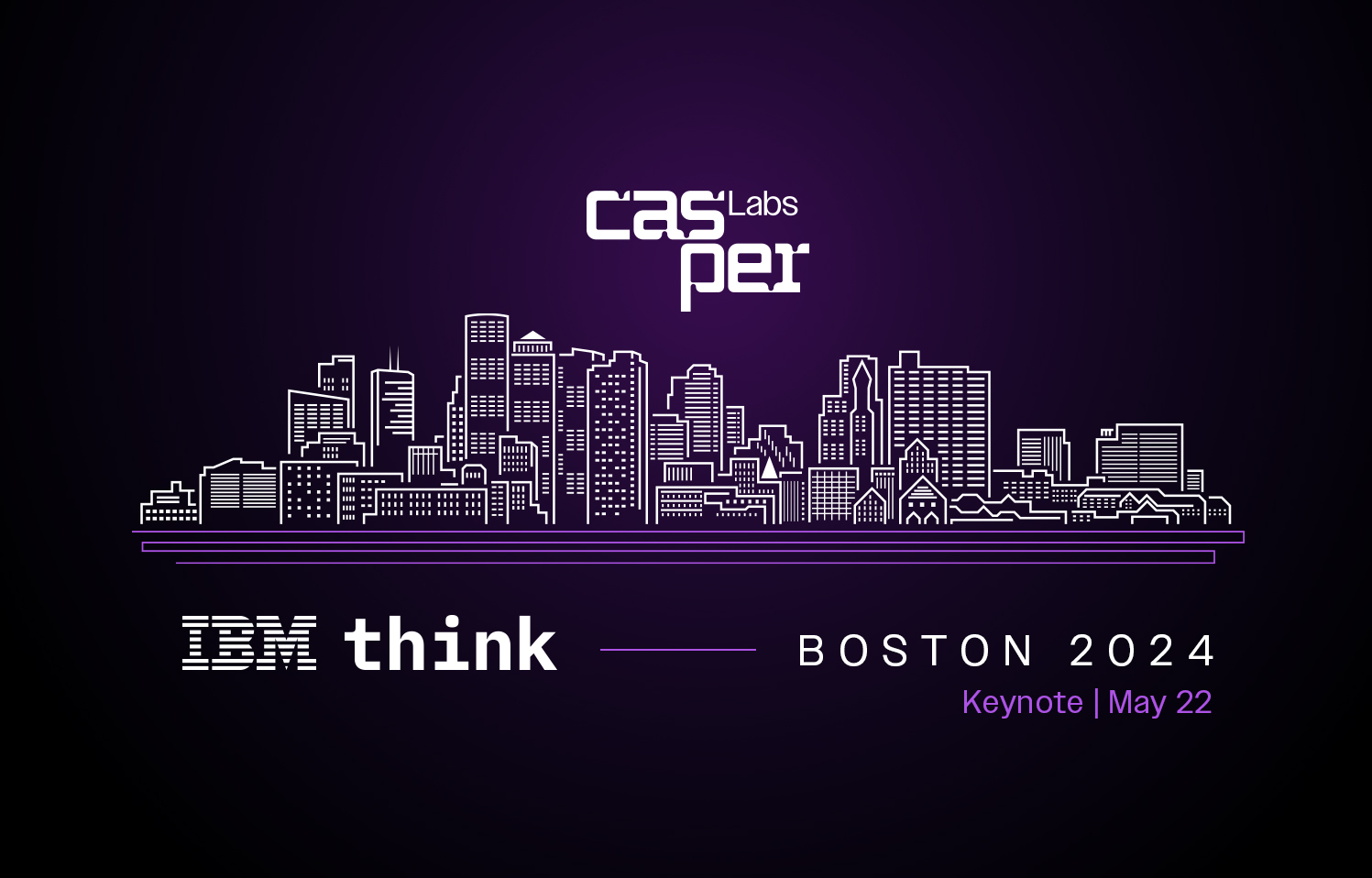BOSTON -- While its bigger and younger tech competitors race to match and outdo each other in the size, speed and scope of their generative AI models, IBM is taking a different, more targeted approach
The 113-year-old vendor is focusing intently on enterprise, not consumer, applications of GenAI. IBM provides smaller, customizable, open source large language models and assistants designed for businesses to modernize their codebase and automate operations, among other things.
All the models now come with IBM's LLM safety and security layer, Watsonx.governance, which also is now available on Amazon SageMaker and can be used with third-party LLMs.
Beyond its own Granite line of LLMs and its newly expanded line of AI assistants on the nearly year-old Watsonx generative AI platform, IBM also supports and provides integrations with multiple LLMs and AI platforms from "frenemies" including Microsoft, Amazon, Meta and Mistral AI.
Different approach
IBM has lagged behind flashier GenAI vendors such as OpenAI and Google. That befits its image as a reliable, though unexciting, provider of software and hardware for large, traditional enterprises such as banks, government agencies and manufacturers.
But it has moved into generative AI all the same, with its own strict focus on implementing enterprise applications of the technology.
"AI is going to be deployed across the enterprise, unlocking and unleashing a massive amount of productivity," IBM Chairman and CEO Arvind Krishna said during his keynote at the IBM Think 2024 conference on May 21. "That is why we introduced Watsonx. It is really aimed at helping you accelerate your AI deployment."
Despite its extensive and at times checkered history with AI dating to the technology's early days in the 1950s, IBM has moved cautiously into the GenAI world that exploded in November 2022 with OpenAI's introduction of ChatGPT.
They are a little bit late to the market, but IBM looked at it and said, 'Let others play that game, that's not where we want to be.'
Andy Thurai Analyst, Constellation Research
The open source generative AI course the vendor is pursuing -- in concert with its giant open source subsidiary, Red Hat -- is prudent and appeals to its expansive base of enterprise customers around the world, said Andy Thurai, a Constellation Research analyst.
"They are a little bit late to the market, but IBM looked at it and said, 'Let others play that game, that's not where we want to be,'" Thurai said. "So, they created the Granite models. At first, they didn't get that much traction, so they open sourced them."
With this strategy -- similar in some ways to what Meta is doing with its open models -- IBM lets enterprises use the open source Granite models for free, but monetizes them with support and lease revenue from customers using the Watsonx platform.
"They don't want to be depending on one model, including their own model," Thurai continued. "Instead, they're saying, 'I'll give you all the models you want.'"
A coding assist
Meanwhile, IBM's Watsonx Code Assistant for Enterprise Java Applications and Code Assistant for Z, which is used for accelerating mainframe application modernization, are welcome new tools, said Marshall Graves, a partner at Stone Door Group.
The digital consultancy, based in Monteagle, Tenn., is an IBM partner that contracts with enterprises to update and install IBM code and software. The firm has been using Watsonx assistants to augment human coders' work since the platform release last July.
"The code assistants are very helpful for teams that don't have enough resources to scale, to do better work and automation," Graves said in an interview at the conference. "They're useful because our customers need more scale."
Stone Door Group plans to use the new Java and Z assistants, when they are generally available in the next few months, for tasks such as rewriting old COBOL code, he said.
As for GenAI, the firm and its clients require AI governance. "I think the IBM governance piece is huge, because people don't really know how to trust the AI," Graves added. "As a company, if you're going to choose a platform to build on, you really need to believe you can trust the underlying model."
Another point of emphasis in IBM's generative AI product rollout this week has been IBM Concert, a system that ties together AIOps tools from various sources on Watsonx.
Concert uses GenAI to identify and fix problems in enterprise IT systems using natural language to make recommendations and orchestrate responses to fix or isolate issues such as security vulnerabilities.
"I like to think of IBM Concert ... as the nervous system for your technology and operations," said Rob Thomas, IBM senior vice president of software and chief commercial officer, during a conference keynote on May 21.
Blockchain AI partners
IBM has also leaned heavily on integrations and product partnerships in its generative AI strategy, and some of them are startups with markedly different cultures than many of IBM's core customers.
One such partner is Casper Labs, a 2018 startup based in Zug, Switzerland, that develops a blockchain-based AI governance system with transparency and auditability for AI training data.
Casper, with support from IBM Consulting and cloud services, is building its new product, Prove AI, on the Casper blockchain and integrating it with Watsonx.governance. Prove AI is expected to be released by the end of June.
A potential customer is Greyscale AI -- Casper's first design partner for Prove AI. Greyscale is a supply chain inspection company that uses X-ray imaging and AI algorithms to help manufacturers identify packaging errors or unwanted materials in foods, drinks and medicines before distribution. Casper also aims at compliance with the growing number of AI laws and regulations in Europe and around the world.

SHAUN SUTNER/TECHTARGET
Casper CEO and co-founder Mrinal Manohar appeared on Wednesday with IBM software and AI executives on the main keynote stage at the Think conference to discuss how to generate business value with responsible AI.
One application of Prove AI is using blockchain's secure auditable ledger to document iterative changes in the development of custom generative AI models, Manohar said in an interview.
"Version control is unfortunately really absent from the AI tech stack right now," he said. "But appropriate governance controls allow you to do it."
Manohar said working with IBM for the last six months to code the new product was smoothed in part because of IBM's own experience with blockchain technology, as well as the vendor's emphasis on alliances.
"It looks like a brand-new IBM that's really open to partners and really open to fast innovation," Manohar said.
Shaun Sutner is senior news director for TechTarget Editorial's information management team, driving coverage of artificial intelligence, unified communications, analytics and data management technologies. He is a veteran journalist with more than 30 years of news experience.

